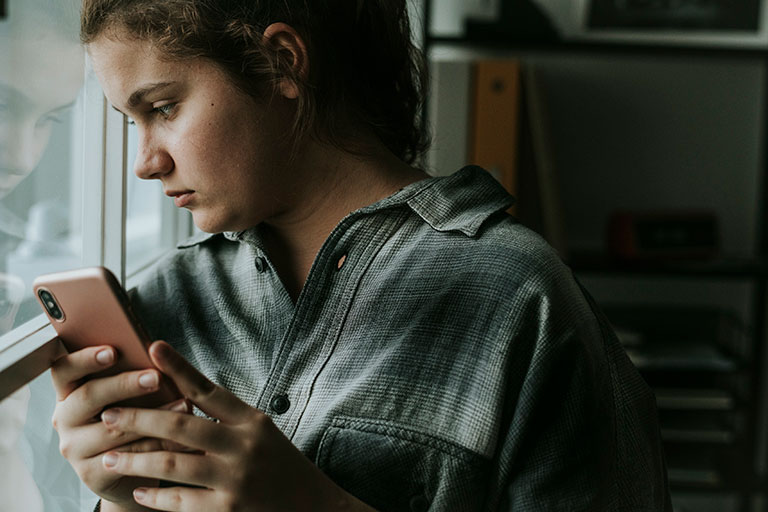May 5, 2020
People who have experienced a traumatic event in their lives – such as violence, injury or serious illness – are at increased risk for an array of behavioral health concerns including post-traumatic stress disorder (PTSD), depression, anxiety and problematic substance use.
Although there are effective treatments for these concerns, research has shown that as few as 1 in 10 patients who could benefit from those services receives them in a timely manner. The need for interventions aimed at helping patients receive the mental health and substance use services they need is an issue Zachary Adams, assistant professor of clinical psychology at the IU School of Medicine, has been addressing as part of IU’s commitment to addressing the addictions crisis that has ravaged our country for the past decade.
Adams's project originally focused on traumatically injured adolescents and young adults, due to the fact that young people are at heightened risk for opioid misuse, including prescription opioid pain medications.
Then COVID-19 hit. Not only did the pandemic change the way Adams needs to conduct his research – in-person interventions at hospitals are currently not an option – but now he is looking at the emotional and behavioral consequences of the pandemic on young people, their need for mental health services and how best to link them to resources and care using technology.
“We know that many people who experience trauma, including infectious disease outbreaks, often need additional emotional support in the weeks and months following the event, but we can’t always tell right away who will need those services," Adams said. "Currently, there are not well-established strategies for monitoring emotional or behavioral recovery after a trauma that also allow us to connect them to clinical services when needed. Because of nationwide behavioral health workforce shortages – including here in Indiana – we are testing technology-based methods for identifying who may benefit from services after a trauma.”
People who experience trauma can be left with a number of feelings and mental health issues. Grief and depression can affect changes in their lives such as missing work or school or connection with loved ones. With COVID-19, Adams said some could face similar mental health issues including grief if they are a survivor of the virus, mental health issues from social isolation, stress from having a loved one with the virus and an increase in substance use. As with any trauma, the effects could be greater for people with pre-existing psychiatric concerns.
Adams’s work aims not only at identifying those who may experience emotional or behavioral issues, but also connecting those in need to available treatment resources. His project uses the Telehealth Resilience and Recovery model developed at the Medical University of South Carolina as well as a web-based platform for enrolling participants, monitoring symptoms and conducting periodic assessments.
It also includes a way to educate people on what to expect when leaving the hospital and during their recovery period. The model is delivered via a web-based app, text messaging, online survey and/or phone call.
“We are also interested to learn whether the recent expansion of telehealth-based mental health services, where people can access services from home through virtual visits, makes it easier for trauma patients to connect to care,” Adams said.
Not everyone who undergoes a traumatic injury, and now those who are impacted by COVID-19, will require treatment, Adams said. Many will return to normal functioning. But for those who do not, Adams’s project aims to connect them with the resources they need to help them in their recovery.
“Regardless of the type of trauma someone has experienced, there’s a possibility for an uptick in substance use, depression, PTSD and other concerns.” Adams said. “We want to make sure people who would benefit from additional mental health services are being connected to care in an efficient way so they can recover and move forward with their lives.”



